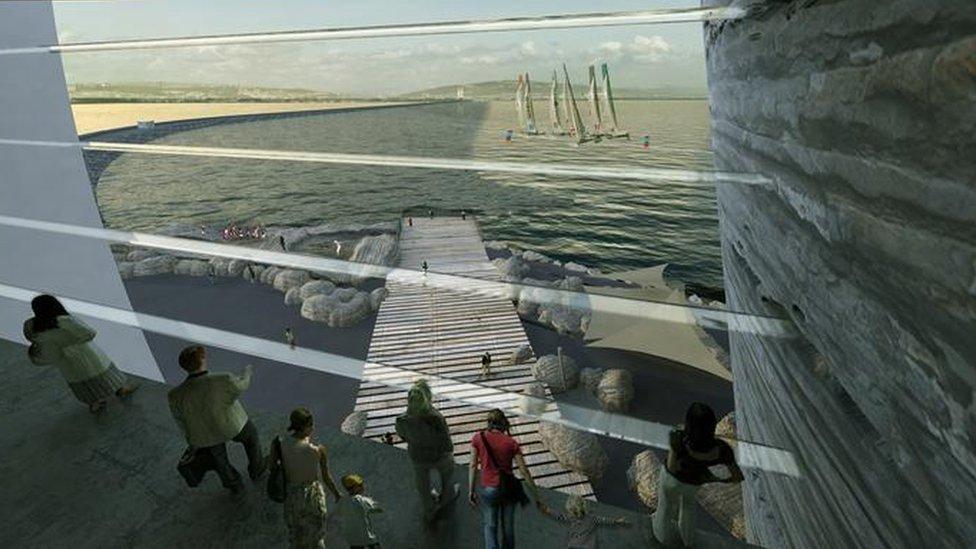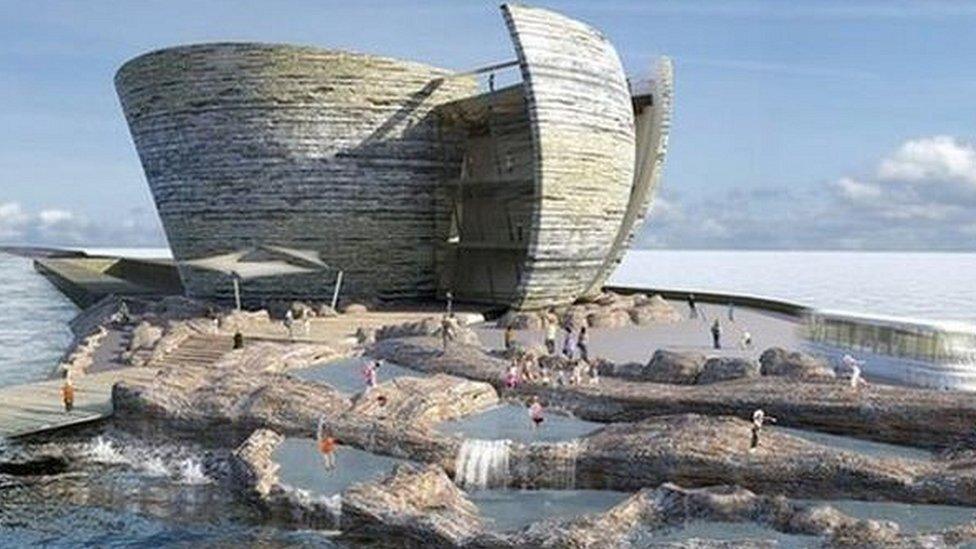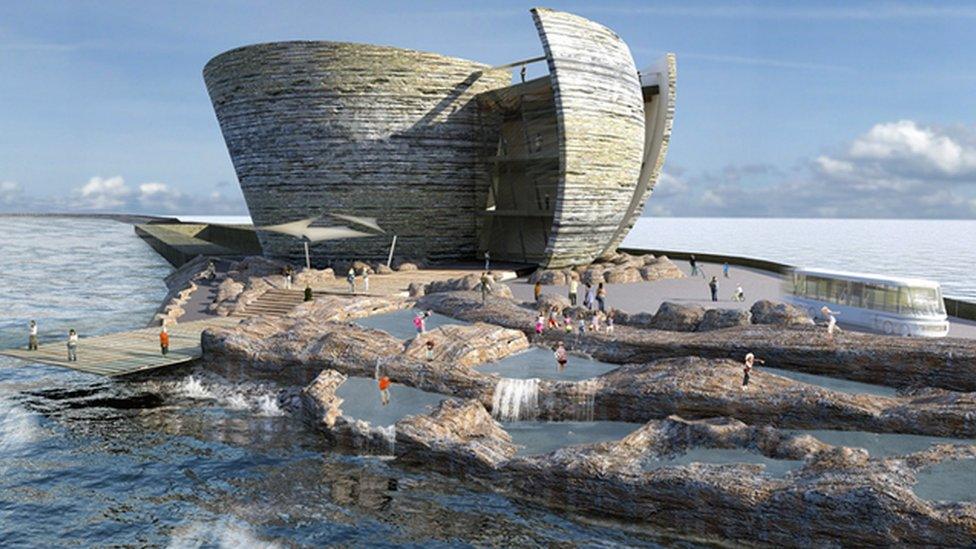Decision on tidal lagoon needed, company tells government
- Published

The company behind the world's first tidal lagoon power station has warned the UK Government must decide if it is going to back the billion pounds project in the next few weeks.
Building work on the lagoon in Swansea has already been delayed by a year, after negotiations over how much public money it would need stalled.
Speaking to BBC News, the head of Tidal Lagoon Power says an answer must now come 'in the next four to six weeks,' or the project will run into real problems.
The Department of Energy and Climate Change says it is "carefully considering the Swansea Bay project to see whether it is in the best interest of bill payers".
The Swansea lagoon would be the first of six around Britain's coastline, with turbines placed in the sea wall to generate energy from the ebb and flow of the tide.
Together, its claimed the lagoons could generate 8% of the UK's electricity, with a life cycle of 120 years - but the initial cost has been seen as prohibitively high.
"We believe we've exhaustively shown the government the benefits," says chief executive Mark Shorrock. "We need to start in the water in March 2017, so its very important for us to have a decision now, in the next four to six weeks."
"Our message is now that we are ready, we've got all the designs ready," he adds, "we've got all the supply chains ready, it would be good to get a decision so that we can get in the water early next year and start building a world first here in Swansea Bay."
'Bad deal'
When negotiations began a year ago the company was looking for a guaranteed "strike price" of £168 per megawatt hour for its electricity, which would be subsidised by the government for 35 years.
That price was far higher than the £96.50/Mwh agreed for the new nuclear reactor at Hinkley - but it is believed a new deal has been discussed which would put the price at £96.50/Mwh with a subsidy lasting 90 years.
According to the Philip Booth from the Institute of Economic Affairs, that would still be a very bad deal for bill payers, who would have to shoulder the cost.
"I really think its extremely imprudent for the government to get involved in very long-term contracts for electricity to supply," he argues.
"It will prove probably to be potentially the most expensive form of producing electricity that the government could possibly support."
He argues the state should not play a financial role in the energy market, saying: "We should really leave it to the electricity companies themselves to decide how they are going to meet the nation's electricity needs."
Tidal Lagoon Power says its larger projects planned for Cardiff, Newport, Colwyn Bay, Bridgwater and West Cumbria would generate electricity at a lower cost, making tidal energy potentially cheaper than nuclear in the future.
Last year the Swansea lagoon was included in the Conservative party's general election manifesto, but there has been growing anxiety over its future since David Cameron said in January his enthusiasm for the lagoon had been "reduced slightly by the fact that the cost would be quite high".
Job losses
Pressure has grown recently after the announcement that over 700 jobs are to be lost in the area, at the Tata steelworks Port Talbot.
Many local companies are pinning their hopes on the lagoon to bring a new industry which could offer the same well-paid employment traditionally offered by the steel industry.
Mark Coia from Fairwood Fabrications, which depends on contracts from Tata steel, says his company faces losing 100 of its 250 permanent workforce.
He says the area is "seen as a grave in terms of what's been happening with large industry in this part of the world, " and the opportunity to help build and maintain turbines would offer his company decades of work.
"We see it as absolutely vital for this area - we see no attractions coming forward that can employ the number of skilled people that would be displaced from traditional industry into this industry."
In a statement the Department of Energy and Climate Change says: "Our priority is to provide secure, clean and affordable energy for hardworking families and businesses."
"We are carefully considering the Swansea Bay project to see whether it is in the best interest of bill payers. At this point it would be inappropriate to comment further."
- Published6 February 2016

- Published26 January 2016

- Published18 January 2016

- Published15 January 2016

- Published13 January 2016
